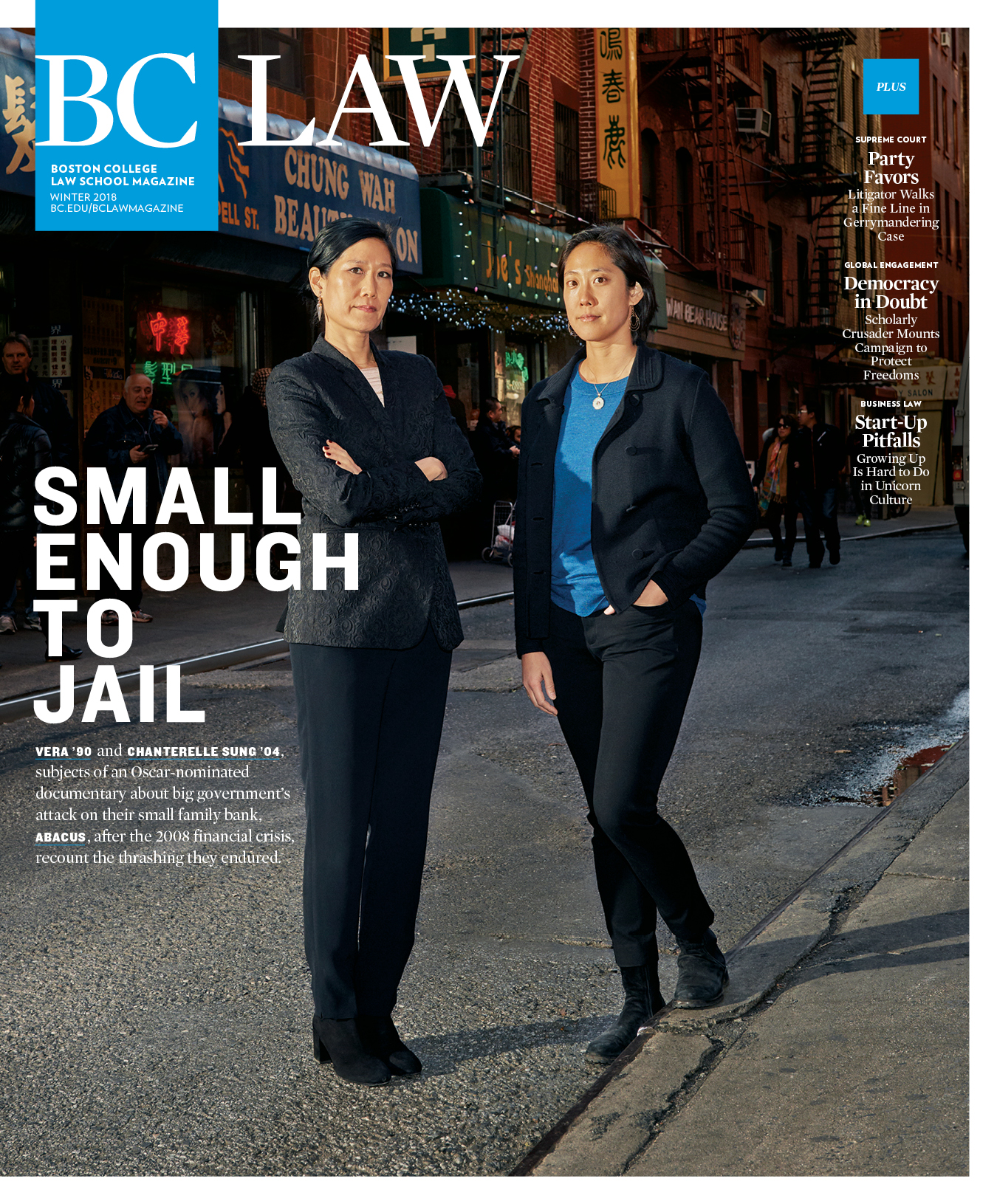People are often surprised to learn that my work in law practice was primarily in the area of financial services regulation. In the late 1980s and early 1990s, financial services was undergoing rapid change, and legal work in the area raised key questions about the relative merits of strict regulatory boundaries that confined financial services to defined spheres of activity, versus a more deregulated, free market approach. As we all know, the latter view prevailed, but what did not change was the notion that some financial institutions were “too big to fail” regardless of the regulatory environment. The country learned what that meant in 2008, with devastating effect.
This past November, during the reunion weekend, we had the pleasure of welcoming two alumnae sisters back to campus, Vera ’90 and Chanterelle Sung ’04. The Sungs had a dark tale to tell about the cost their family paid in the wake of the 2008 financial crisis. Abacus Bank,
run by the Sung family and primarily serving the Asian American immigrant community, was the only bank in the United States to be criminally prosecuted after the 2008 financial crisis. The big Wall Street banks—banks that were too big to fail—were bailed out by America’s taxpayers, and their business practices leading up to the crisis received relatively little scrutiny from law enforcement. Abacus bank, however, was Small Enough to Jail—the title of the Oscar-nominated PBS Frontline documentary that tells the tale.
One thing that practicing, and later teaching, financial services regulation taught me is that the financial institutions established to serve recently arrived immigrants were a huge part of the development of the American banking system. “Immigrant savings banks,” as they were once known, supported waves of immigrants throughout the 19th and early 20th centuries, and later, small savings and loans and credit unions provided similar opportunities to save and invest. Over time, many of these institutions flourished and merged with other banks, particularly as their early customers gained financial success through their purchases of homes, businesses, and other assets that allowed them to assimilate successfully. So, the founding story of Abacus Bank is an old one.
“Anyone who has been falsely accused and prosecuted for a crime knows what a gut-wrenching and debasing experience it can be, and the Sungs still bear scars from their experience.”
Unfortunately, our nation’s story of immigrant success is also darkened by a history of immigrant exclusion, xenophobia, and cultural ignorance. If you have not done so, I urge you to watch the documentary. It is a deeply disturbing story that, fortunately for the Sungs, has an ending in which justice is served. Anyone who has been falsely accused and prosecuted for a crime knows what a debasing experience it can be, and the Sungs still bear scars. But the tale they tell is one of redemption, and ultimately, a renewed faith in the power of the rule of law.
I was extraordinarly proud when the Sungs addressed the 2017 Alumni Assembly. They both spoke eloquently and passionately about how their training at BC allowed them to confront the injustice of the situation that they faced, respond with the tools the law provided, and ultimately prevail with their dignity intact and their faith in the legal system restored. Vera and Chanterelle Sung are outstanding examples of why the work that we do at BC Law is so important and why the values that animate us matter. In the world of financial services, Abacus Bank was the little guy and the outsider—an easy target. But at the end of the day, Abacus Bank could be any one of us.
Photograph by Suzi Camarata



